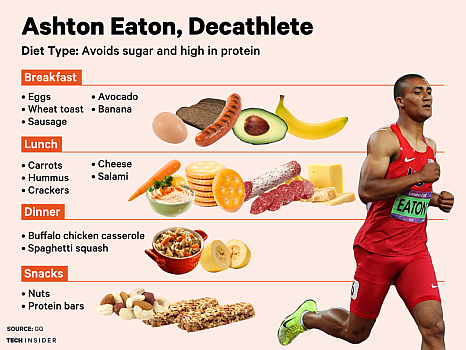
Highland Games athletes need a combination of strength, power, and endurance to excel in their sport. While training and conditioning play a crucial role in their performance, nutrition is often overlooked. However, the right nutrition strategies can significantly enhance an athlete’s performance, speed up recovery, and minimize the risk of injury. In this article, we will explore some essential tips for highland games athletes to optimize their eating habits and fuel their bodies for peak performance.
The Importance of Proper Fueling
Highland Games events require intense bursts of power and strength, making it essential for athletes to consume the right fuel to perform at their best. Proper fueling not only enhances performance but also aids in muscle recovery and prevents fatigue during training sessions and competitions.
Macronutrient Balance
Achieving a balance of macronutrients – carbohydrates, proteins, and fats – is crucial for highland games athletes. Carbohydrates are the primary source of energy for the body and should make up the majority of an athlete’s caloric intake. Opt for complex carbohydrates such as whole grain bread, brown rice, and sweet potatoes, as they provide sustained energy throughout the day.
Protein is essential for muscle repair and growth. Include lean sources of protein such as chicken breast, turkey, fish, and legumes in your meals. Fats, often feared by athletes, are actually necessary for hormone production and the absorption of fat-soluble vitamins. Focus on healthy fats found in avocados, nuts, seeds, and olive oil.
Pre-Competition Meal Planning
The pre-competition meal plays a significant role in an athlete’s performance. The goal is to fuel the body adequately without causing discomfort or sluggishness. Opt for a balanced meal that includes a moderate amount of carbohydrates, protein, and fats. Examples include a grilled chicken breast with sweet potatoes and steamed vegetables or a turkey sandwich on whole grain bread with avocado.
Consider having this meal 2-3 hours before your event to allow for digestion. It is also crucial to stay hydrated by drinking plenty of water throughout the day. Avoid heavy, high-fat meals that may lead to gastrointestinal discomfort or a sudden drop in energy levels.
Hydration
Proper hydration is fundamental for highland games athletes to maintain performance and prevent dehydration. Athletes should aim to consume at least half their body weight in ounces of water each day. For example, if you weigh 160 pounds, you should aim to drink 80 ounces (2.4 liters) of water daily.
During training sessions or competition days, it is essential to drink water regularly. Monitor your urine color; if it is light yellow, almost clear, you are adequately hydrated. Dark yellow urine signifies dehydration, so increase your water intake immediately.
Snacking for Sustained Energy
Athletes often have high energy demands and may require additional fuel between meals. When choosing snacks, aim for a combination of carbohydrates and proteins to sustain energy levels. Some excellent snack options for highland games athletes include Greek yogurt with berries, trail mix with nuts and dried fruits, or a protein shake with a piece of fruit.
Post-Exercise Recovery
After intense training or competition, the body needs adequate nutrients to recover and repair muscle tissue. Focus on replenishing glycogen stores by consuming a post-workout meal rich in carbohydrates and protein within 30-60 minutes of exercise.
A well-balanced post-workout meal may consist of grilled salmon, quinoa, and roasted vegetables, or a lean beef stir-fry with brown rice. Including a source of protein helps stimulate muscle protein synthesis and aids in recovery and growth.
Supplementation
While a well-balanced diet can provide most of the necessary nutrients, some athletes may benefit from specific supplements. However, it is important to consult with a registered dietitian or sports nutritionist before incorporating any supplements into your routine.
Common supplements for highland games athletes include whey protein powder, creatine monohydrate for strength and power, omega-3 fatty acids for reducing inflammation, and vitamin D for bone health and immune function.
Conclusion
Proper nutrition is a crucial component of highland games athletes’ training and performance. By following these nutrition strategies, athletes can optimize their fueling, enhance performance, reduce the risk of injury, and promote overall well-being. Remember to prioritize a well-balanced diet, hydration, and recovery to reach your full potential in the thrilling world of highland games.